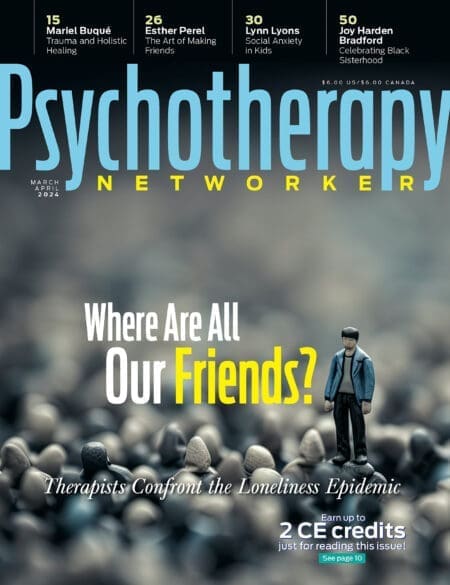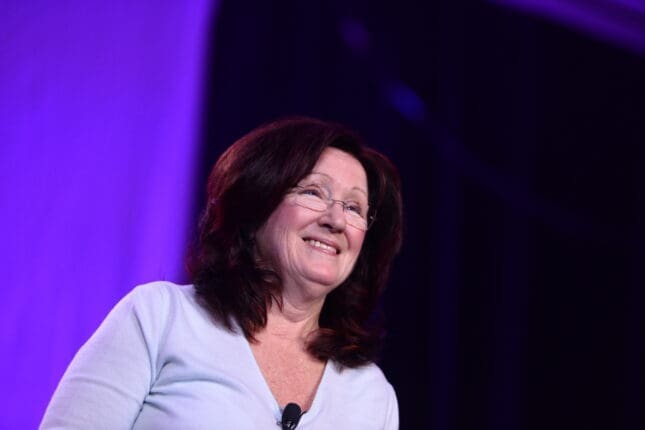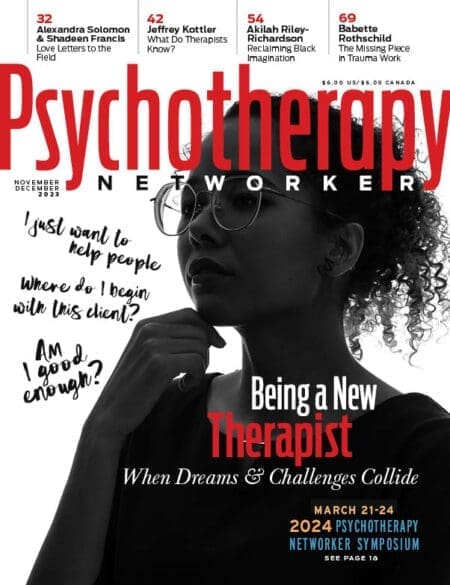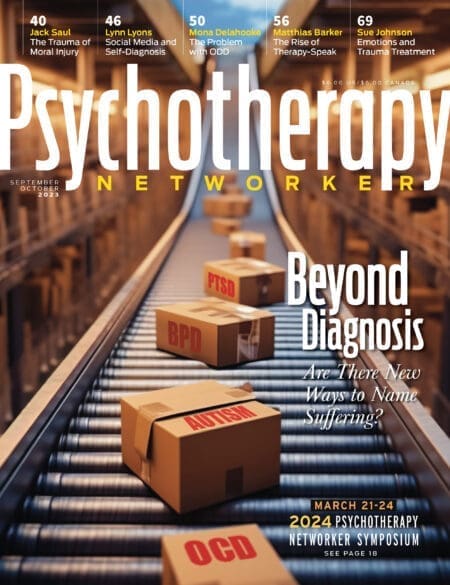With a heavy heart, we’re sharing that Sue Johnson—developer of Emotionally Focused Therapy (EFT) for couples and Emotionally Focused Individual Therapy (EFIT)—passed away after a three-year battle with cancer.
A leading force in the field, Sue was also a longtime contributor to the Networker and a regular luminary on the Symposium stage. She was a dear friend to many on our staff and a remarkably clever writer, who could inspire deep insights and genuine laughs with her honest, down-to-earth stories.
Whether she was describing a long-suffering couple whose relationship she transformed, what she learned growing up in Britain as a pub-keeper’s daughter, or how she believed the entire field of psychotherapy should shift on its axis, Sue was always uniquely Sue—and, like so many of you, we loved her.
Over the years, she enriched our community in countless ways. Here are just a few of her key contributions—a mosaic of her intelligence, wit, and warmth we wanted to offer.
Networker Lifetime Achievement Award (Symposium 2022)
Recently, Sue received the Lifetime Achievement Award at our annual Symposium, where colleagues honored her storied career and reveled in her emotion-filled acceptance speech.
Are You There for Me? Understanding the Foundations of Couples Conflict (September/October 2006)
This is Sue’s lively, in-depth telling of the genesis of EFT, the obstacles she overcame as she delved into researching emotion, and how she was able to change the landscape of couples therapy.
My First Client, My Greatest Teacher (Symposium 2018)
Sue’s humor and generosity were in full effect at this storytelling event, in which she captivated the audience with her tale of Lee, a client who wouldn’t speak or swallow, but nonetheless taught her to find her own voice as a therapist.
The Dance of Sex (January/February 2016)
A classic example of how Sue could beautifully weave her love of tango into her passion for helping couples “learn to really dance together, whether in bed or anywhere else.”
An Emotionally-Focused Path to Healing Trauma (September/October 2023)
In Sue’s most recent interview for the magazine, she details her deep belief that working with relationships and emotions is the key to healing trauma.
The Best Love Story Ever (May/June 2019)
Ever-evocative, Sue explains why attachment science should be the world’s modern retelling of Romeo and Juliet.

As we mourn Sue’s passing, we hold tight to the knowledge that her vibrant spirit and legacy will live on in our hearts—and in the work so many of you do every day with clients.
Photo by Sam Levitan Photography
Livia Kent
Livia Kent, MFA, is the editor in chief of Psychotherapy Networker. She worked for 10 years with Rich Simon as managing editor of Psychotherapy Networker, and taught writing at American University as well as for various programs around the country. As a bibliotherapist, she’s facilitated therapy groups in Washington, DC-area schools and in the DC prison system. In 2020, she was named one of Folio Magazine’s Top Women in Media “Change-Makers.” She’s the recipient of Roux Magazine‘s Editor’s Choice Award, The Ledge Magazine‘s National Fiction Award, and American University’s Myra Sklarew Award for Original Novel.






